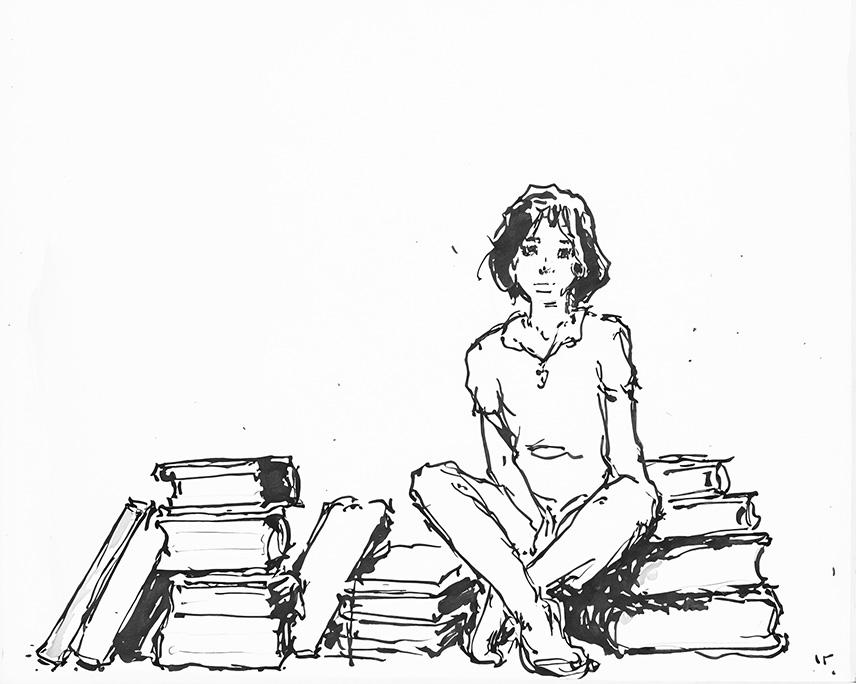How to Break the Cycle of Instant Gratification and Find Joy in Completion
If you’re like me, you might have a habit of constantly chasing new ideas and starting new projects. There’s a certain thrill in diving into something fresh. It’s exciting, invigorating, and full of endless possibilities. But the downside to this constant pursuit of the new: the trail of unfinished projects and unused supplies that begins to pile up around you.
For years, I found myself caught in this cycle. I’d come up with a new idea, rush out to buy all the supplies I needed, and then—just as quickly—lose interest. The result? A home filled with clutter and a mind weighed down by the burden of all those incomplete projects. Despite knowing this, I’d keep going back to the shops, hunting for the next spark of inspiration.

What I eventually realized is that this habit wasn’t just about creativity—it was about the instant gratification that comes from starting something new. There’s a quick hit of excitement when you embark on a new project, but that feeling doesn’t last. And when it fades, you’re left with a pile of unfinished business and a room full of clutter.

Does this sound familiar, don’t worry—you can break the cycle. Here’s how I did it, and how you can too:
Acknowledge the Pattern
The first step is recognizing the cycle you’re in. Are you constantly starting new projects but rarely finishing them? Is your space filled with items you bought with good intentions but never used? Acknowledge this pattern and understand that it’s driven by the desire for instant gratification. This awareness is crucial for making a change.
Shift Your Focus
Instead of seeking the thrill of something new, shift your focus to what you already have. Make a commitment to spend time with your unfinished projects or materials. The next time you feel the urge to go shopping for a new idea, walk into your craft room, office, or workspace instead. Take stock of what’s already there and challenge yourself to complete something.
Set Small, Achievable Goals
One reason we get stuck in the cycle of starting but not finishing is that big projects can feel overwhelming. Break your projects down into smaller, more manageable tasks. Set clear, achievable goals for each session. Completing even a small part of a project can give you a sense of accomplishment and motivate you to keep going.
Find New Excitement in Completion
At first, revisiting old projects may not feel as exciting as starting something new. But give it time. As you complete each task or project, you’ll start to experience a different kind of satisfaction—a deeper, more lasting pride in seeing something through to the end. This feeling is more rewarding than the fleeting thrill of a new idea, and it helps you build momentum for future projects.
Celebrate Your Progress
Take a moment to celebrate your achievements, no matter how small. Whether it’s finishing a project that’s been sitting around for months or simply organizing your workspace, recognise the progress you’ve made. This positive reinforcement will help you build a habit of completion rather than starting something new.
Embrace Creativity with Constraints
Instead of always looking for new materials or ideas, try to get creative with what you already have. Constraints can actually boost your creativity by forcing you to think outside the box. See what you can make with the supplies you already own, or how you can repurpose something you’ve set aside.
Reflect and Adjust
Periodically reflect on your progress. Are you finding joy in completing projects? Is your space becoming less cluttered? Adjust your approach as needed, but keep the focus on completion and using what you already have.
Breaking the cycle of instant gratification isn’t easy, but it’s incredibly rewarding. By shifting your focus from starting to finishing, you’ll not only reduce clutter but also gain a deeper sense of satisfaction and pride in your work. Remember, the joy of completion is more fulfilling and lasting than the fleeting thrill of starting something new.

Start today, and watch how it transforms your creative process—and your life.

